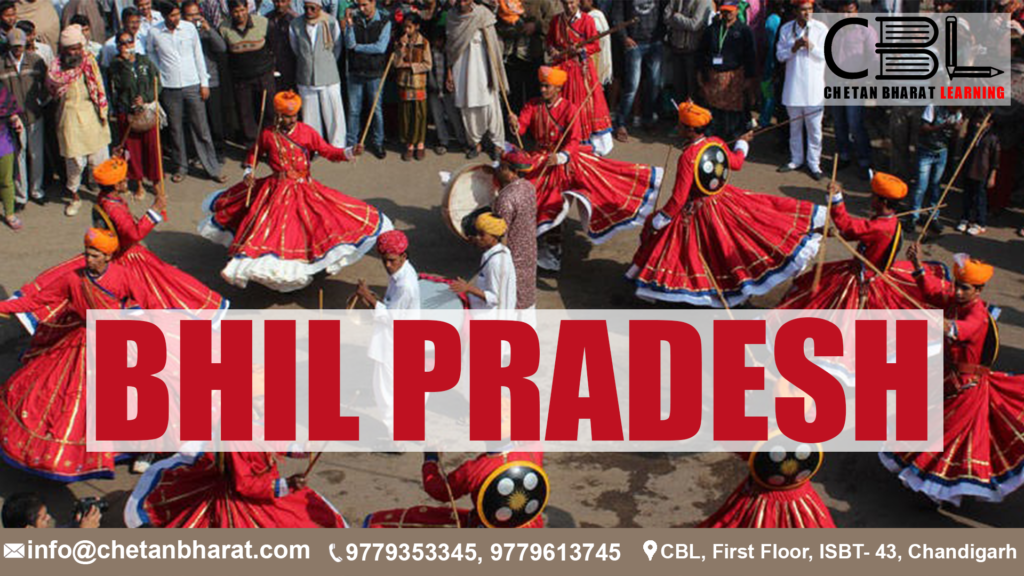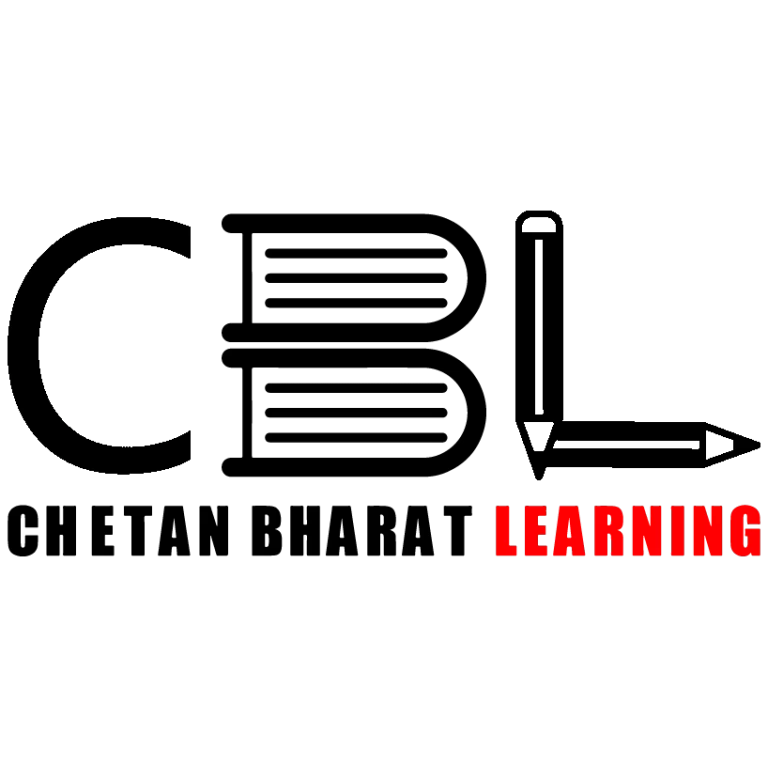
Important for UPSC, State PCS
Prelims: Polity Govind Giri Banjara, Mangarh Hill, Bhili language , special category status,
Mains: General Studies Paper 2 , demand for smaller state , sixth schedule states .
why in the news
Bhil tribe demanding an independent tribal state i.e., Bhil Pradesh, comprising parts of Rajasthan, Madhya Pradesh, Gujarat, and Maharashtra
Demand of Bhil Pradesh:
- The Bhil community has been demanding that 49 districts be
carved out of the parts of Rajasthan, Madhya Pradesh, Gujarat
and Maharashtra to establish Bhil Pradesh. - Bhil social reformer and spiritual leader Govind Guru first
raised the demand for a separate state for tribals back in
1913.
This was after the Mangarh massacre, which took place six
years before Jallianwalla Bagh and is sometimes referred
to as the “Adivasi Jallianwala”.
It saw hundreds of Bhil tribals being killed by British
forces on November 17, 1913, in the hills of Mangarh on
the Rajasthan-Gujarat border. - Post-Independence, the demand for Bhil Pradesh was raised
repeatedly
About Bhils :

- Bhills are considered as one of the oldest tribe in India and identified as one of the Dravidian racial tribe of Western India belonging to Austroloid group of tribes.
- Some families have migrated to other states like Tripura for – jobs in tea gardens.
- In the Bhil tribe, sub-tribes Bhil-Garasia and Dholi Bhil are
included. - It is believed that their name emerged from the Dravidian
language word “billu” means bow and arrow- They are a cross section of great Munda race and a wild tribe of India and speak a language (Bhili) of Dravidian origin.
- Once they were the ruler in parts of Rajasthan, Gujarat, Malwa, Madhya Pradesh and Bihar.
- As per Census 2011, there are 1.7 crore Bhils across the country.
- Their largest concentration is in Madhya Pradesh at about 60 lakh, followed by 42 lakh in Gujarat, 41 lakh in Rajasthan and 26 lakh in Maharashtra.
- Bhills are Hindus by religion and appease deities of forest and evil spirits beside pujas of Lord Shiva and Durga.

PROCESS TO FORM/RENAME A STATE IN INDIA
- Article 3 authorizes the Parliament to:
form a new state by separation of territory from any
state or by uniting two or more states or parts of states
or by uniting any territory to a part of any state;
increase the area of any state;
diminish the area of any state;
alter the boundaries of any state; and
alter the name of any state. - However, Article 3 lays down two conditions in this regard:
a bill contemplating the above changes can be
introduced in the Parliament only with the prior
recommendation of the President;
and before recommending the bill, the President has
to refer the same to the state legislature concerned for
expressing its views within a specified period. - The President (or Parliament) is not bound by the views
of the state legislature and may either accept or reject them. - Moreover, the Indian Constitution (Article 4) itself declares
that laws made for alteration of names of existing states
(under Articles 3) are not to be considered as amendments
of the Constitution under Article 368
Such laws can be passed by a simple majority and by
the ordinary legislative process.
Advantage of smaller state
- Better Governance: More focused administration, quicker decision-making and policy implementation etc.
- Economic Development: Targeted policies for local needs, better utilization of natural resources, etc
- Administrative Efficiency: Easier management of smaller geographical areas.
- Other: Reduced regional disparities, Distribution of power from larger units to smaller ones, etc.
REASONS FOR BEHIND DEMAND FOR
A SEPARATE STATE BY BHILS
- Cultural and Linguistic Homogeneity:
The Bhil community, which spans across parts
of Gujarat, Maharashtra, Madhya Pradesh, and
Rajasthan, shares a common language (Bhili) and
cultural practices. Advocates argue that a separate
state would enhance the preservation and promotion of
their distinct cultural heritage.
Historical considerations, such as those by the Fazal Ali
Commission, emphasize the importance of linguistic
and cultural homogeneity as a factor for state formation,
recognizing the role of shared cultural identity in
governance. - Geographic Considerations:
- The proposed Bhil Pradesh would include 49 districts
from the four states, encompassing regions with
significant tribal populations and deep historical and
cultural connections that cross current state boundaries. - Geographic unity is seen as crucial for effective
administration and development, ensuring that policies
can be tailored to the specific needs and characteristics
of the region. - Political Marginalization:
- Tribal leaders argue that existing political structures
have not adequately addressed the needs and
aspirations of the Bhil community, leading to a sense
of marginalization. A separate state is viewed as a
means to provide more focused governance and
representation for the community. - Developmental Focus:-
- Proponents believe that the creation of Bhil Pradesh
would lead to more focused developmental policies,
improving resource utilization and addressing specific
tribal welfare needs - Historical issues, such as delays in implementing laws like the Panchayats (Extension to Scheduled Areas) Act, 1996, highlight the necessity for more localized governance to address these concerns effectively
Challenges:
Political Opposition
Administrative Reorganization
Resource Allocation
Social Integration
Way Ahead:–
Forming a High-Powered Commission: Establish a high-powered commission to evaluate the effectiveness of
existing laws and policies related to regional issues. This
commission should propose necessary amendments to
better address regional concerns and ensure more equitable
governance
Comprehensive Deliberation: Engaging with various
stakeholders to understand and address their concerns,
balancing competing interests, and ensuring that decisions
are made in the best interest of regional and national stability.
Strengthening the National Integration Council: Enhance the
role of the National Integration Council to more effectively
address regionalism challenges. This could involve increasing
its mandate and resources to tackle regional disparities and
promote national unity.
Focused Development Plans: Developing targeted strategies
to address regional disparities and promote equitable
development, enhancing the effectiveness of governance
and resource management in newly formed states.
Strengthening Social Cohesion: Implementing measures to
foster social integration and cohesion, addressing the needs
of diverse communities, and ensuring that cultural and
linguistic identities are respected and preserved
CBL Practice Questions for Prelims
Which of the following states is primarily associated with the demand for a separate Bhil Pradesh?
a) Gujarat
b) Madhya Pradesh
c) Rajasthan
d) All of the above
Answer: d) All of the above
CBL Mains Practice Question –
Discuss the demand for a separate “Bhil Pradesh” and analyse the socio-political factors contributing to this movement…




Leave a Reply
You must be logged in to post a comment.